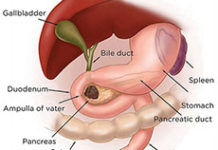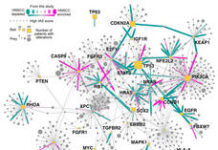Transportation to and from appointments is often a necessary part of receiving cancer treatment. You may need to travel to treatments scheduled consecutively over several weeks or months. Then, you may have to travel to follow-up appointments to check the progress of the treatment and assess next steps in your cancer care.
Getting to these appointments in reliable and affordable ways can be a major challenge for many people with cancer. This can be due to many factors, such as the cost of gas and parking, a lack of public transportation, or not enough social or family support.
Here, learn more about why transportation to and from appointments can be stressful for people with cancer, tips for making this transportation smoother, and programs that can help you save money along the way.
Common transportation challenges during cancer
Both the frequency of appointments and the distance to and from appointments can impact people who are receiving cancer treatment, according to Leeann Medina-Martinez, LCSW, CancerCare’s patient assistance program manager and an oncology social worker. For example, more frequent appointments or longer travel distances can increase your costs regardless of whether you’re taking public transportation, paying for a rideshare service or cab, or purchasing gas for your car. In some areas, reliable public transportation or rideshare services are just not available, which can make it more difficult for people to get to appointments.
How you feel physically after your appointments can also pose a transportation challenge. You may feel weak or dizzy after treatment, which means you may not feel comfortable driving yourself home or taking public transportation. In these instances, you may need to ask someone else for a ride or call a car service. And, in some cases, you may need a wheelchair and wheelchair-assisted vehicle, or you may need someone to help you get from the vehicle to the appointment or to your home.
Another major challenge for people with cancer is the expense related to transportation. Transportation is sometimes called a “hidden cost” of cancer care because it is not as obvious as other costs like medication or insurance. However, the costs of getting to and from appointments can add up over time.
“Most people report not having enough money to travel back and forth as often as needed to appointments or not having someone reliable to take them back and forth due to other commitments like work,” said Ms. Medina-Martinez.
Budgeting for transportation can be particularly challenging if you use a rideshare service because prices fluctuate based on the time of day and traffic. It can be hard to predict added expenses like surge-pricing when bad weather, rush hour, or local events raise the price of trips.
Ms. Medina-Martinez said she and other social workers at her organization often hear from patients forced to reallocate money or give up essentials in order to afford transportation. Other times, patients skip appointments entirely because they cannot afford to get there. According to a 2022 study in JAMA Oncology, delays in care due to transportation barriers were more common among cancer survivors who had lower incomes, were underinsured, were unmarried, or had physical limitations.
When people with cancer miss or delay their appointments, their overall care and outcomes suffer. According to a 2023 study of transportation insecurity, disruptions in care are associated with higher rates of cancer recurrence, worse mortality, and widened racial and income disparities in cancer treatment outcomes.

“A cancer diagnosis changes a lot in a short amount of time, and finances is an area that takes a toll on people. Having transportation to get cancer treatment should not be something that people have to struggle with, but they do.” – Leeann Medina-Martinez, LCSW, patient assistance program manager at CancerCare and an oncology social worker
Tips for affording and saving money on transportation during cancer
Many resources are available to help you save money on transportation during your cancer treatment. CancerCare, for example, offers its own financial assistance programs that help with transportation costs for people with various types of cancer who live in the United States, including U.S. territories. The organization also helps with transportation and other costs for people with cancer in New York City and the tri-state area of New York, New Jersey, and Connecticut. If funding for transportation costs isn’t currently available, you can call CancerCare’s oncology social workers at 800-813-4673 and they can refer you to other financial assistance resources.
The American Cancer Society’s Road to Recovery program also offers free rides for cancer treatment appointments by providing volunteer drivers. The program was suspended during the COVID-19 pandemic but is now open in several communities across the country. You can request this service by contacting the program at 800-227-2345.
Alex’s Lemonade Stand, the Lymphoma Research Foundation, Mercy Medical Angels, Good Days, and the Leukemia & Lymphoma Society also provide assistance with transportation and other costs related to your cancer treatment. Additionally, the National Volunteer Transportation Center has a map of volunteer transportation providers by state and region. There are several other organizations that offer gas cards and other help with costs related to transportation during cancer that can be found online; find programs by searching online using such phrases as “gas cards” and “people with cancer.” You can also contact your local ride-sharing companies to inquire whether they offer any free or lower-cost services for people with cancer.
Remember that you can always reach out to a social worker, patient care coordinator, or case manager at the facility where you’ll be receiving treatment to ask for assistance with transportation costs. Your treatment center may also offer validation of parking tickets that will allow you to pay a flat rate for parking instead of an hourly rate.
If you are struggling with finding reliable or affordable transportation during cancer, be sure to bring this up right away with your health care team. They can help you find support and resources to ensure you are able to attend your appointments. Some questions you might want to ask your health care team about transportation during cancer include:
-
How often will I need to be at the treatment center? Weekly, monthly, or another schedule?
-
How will I feel after treatment? Will I feel well enough to drive myself home or take public transportation?
-
Who can I talk with at my treatment center if I need help with the cost of transportation?
-
Does the facility offer discounts or coupons on parking?
-
Does the facility offer a shuttle or van service for patients?
-
Are there any local volunteer organizations that offer help with transportation to and from appointments?
-
Can you refer me to an oncology social worker or other specialist who can help me budget for transportation or guide me in finding resources to help cover the costs of transportation?








